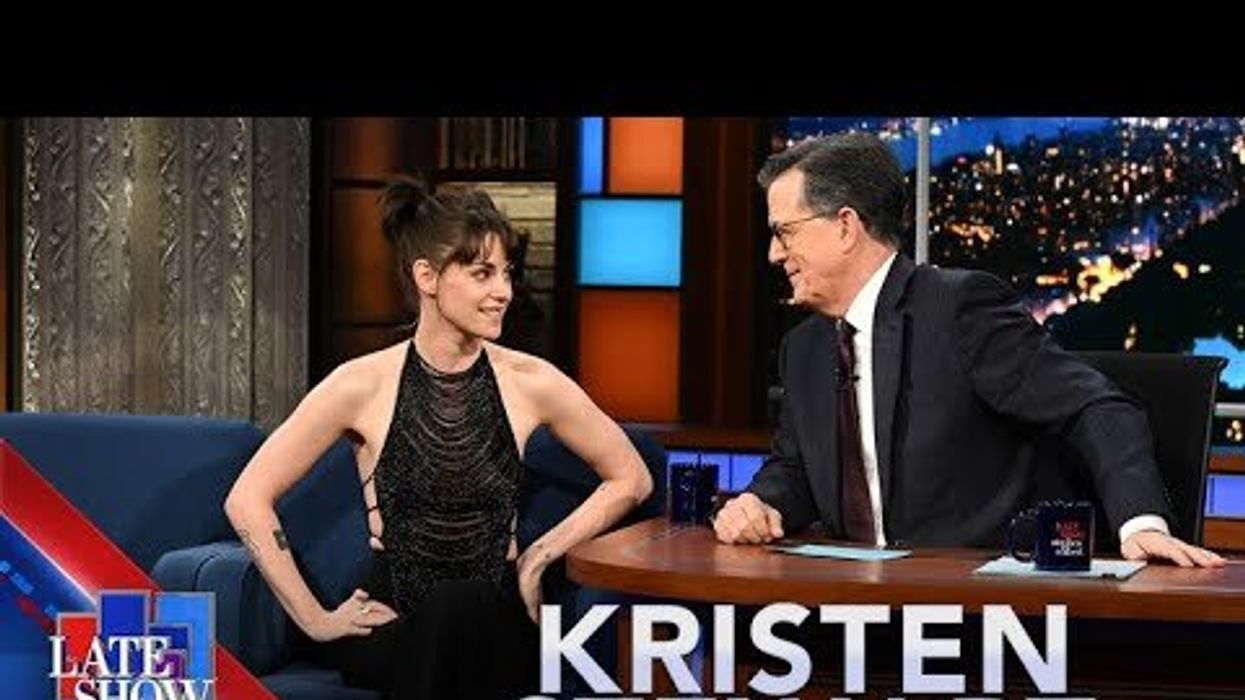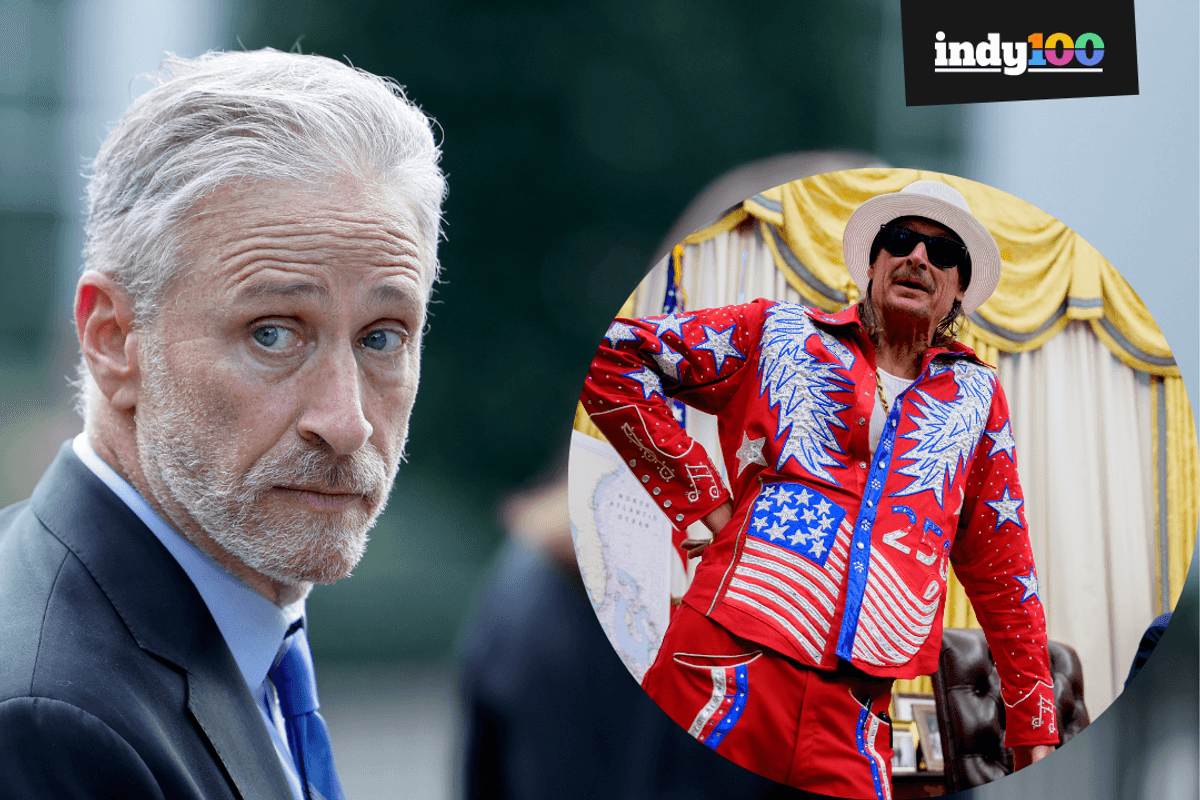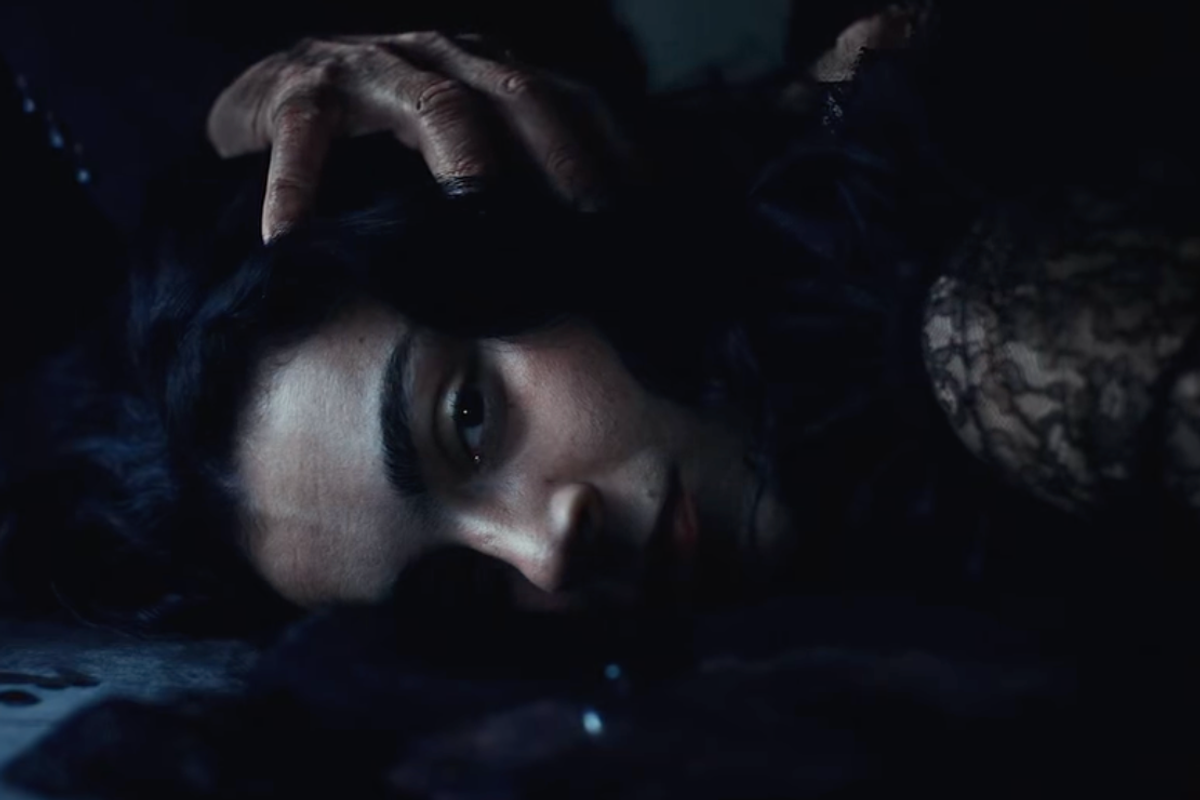Celebrities
Becca Monaghan
Mar 13, 2024
“F*** You!” - Kristen Stewart’s Message To Anyone Triggered By Her Rolling Stone Cover
Stephen Colbert shared Kristen Stewart's controversial Rolling Stone cover on air – despite being told not to.
During The Late Show With Stephen Colbert, the host called the cover "lovely," before revealing that the network CBS told him not to broadcast it.
"They thought that would be not a good idea for us to show this, and I don’t know understand why. Because there’s the cover, right there," Colbert said, while revealing a printout copy.
"I want to say that you look better in a jockstrap than I ever did," he added, referencing the recent controversy among right-wingers who had a lot to say about the cover online.
The actress highlighted that the response was deep-rooted in double standards, saying that it's a "little ironic" considering she's seen "a lot of male pubic hair on the cover of things."
Stewart continued: "I’ve seen a lot of hands in pants and unbuttoned…I think there’s a certain overt acknowledgement of a female sexuality that has its own volition in a way that is annoying for people who are sexist and homophobic."
"I’ve certainly seen more revealing covers on Rolling Stone or Sports Illustrated for that matter," Colbert responded, to which Stewart said: "It’s not remotely explicit."
The Rolling Stone cover sent some X/Twitter users spiralling back in February, with one account simply calling it "disgusting." This was in response to Oli London (an ex 'trans-racial' person, who at one point, went under the knife to look like Jimin from BTS) who suggested the cover "pushes 'Queer’ and non-binary ideology."
Another added: "This is what woke does to you, and it’s horrifying."
Stewart addressed the backlash during Berlin Film Festival.
"In fact, it’s pervasive and it’s everywhere and it’s being denied and it’s crazy that there aren’t more pictures like that. I loved the opportunity," the actress said.
"The era of queer films, being so pointedly only that, is over. It’s done. Maybe they’ll happen, but I think things develop and move on. It’s just so inherent to how we’re all moving forward.
"It’s not making [movies] about the reasons that they’re sidelined, but peoples’ actual experiences, what they love, what their desires are, where they come from, where they want to go and, yeah, not feeling like you always have to stand on a f***ing soapbox and be everyone’s spokesperson."
How to join the indy100's free WhatsApp channel
Sign up for our free Indy100 weekly newsletter
Have your say in our news democracy. Click the upvote icon at the top of the page to help raise this article through the indy100 rankings.
Top 100
The Conversation (0)














